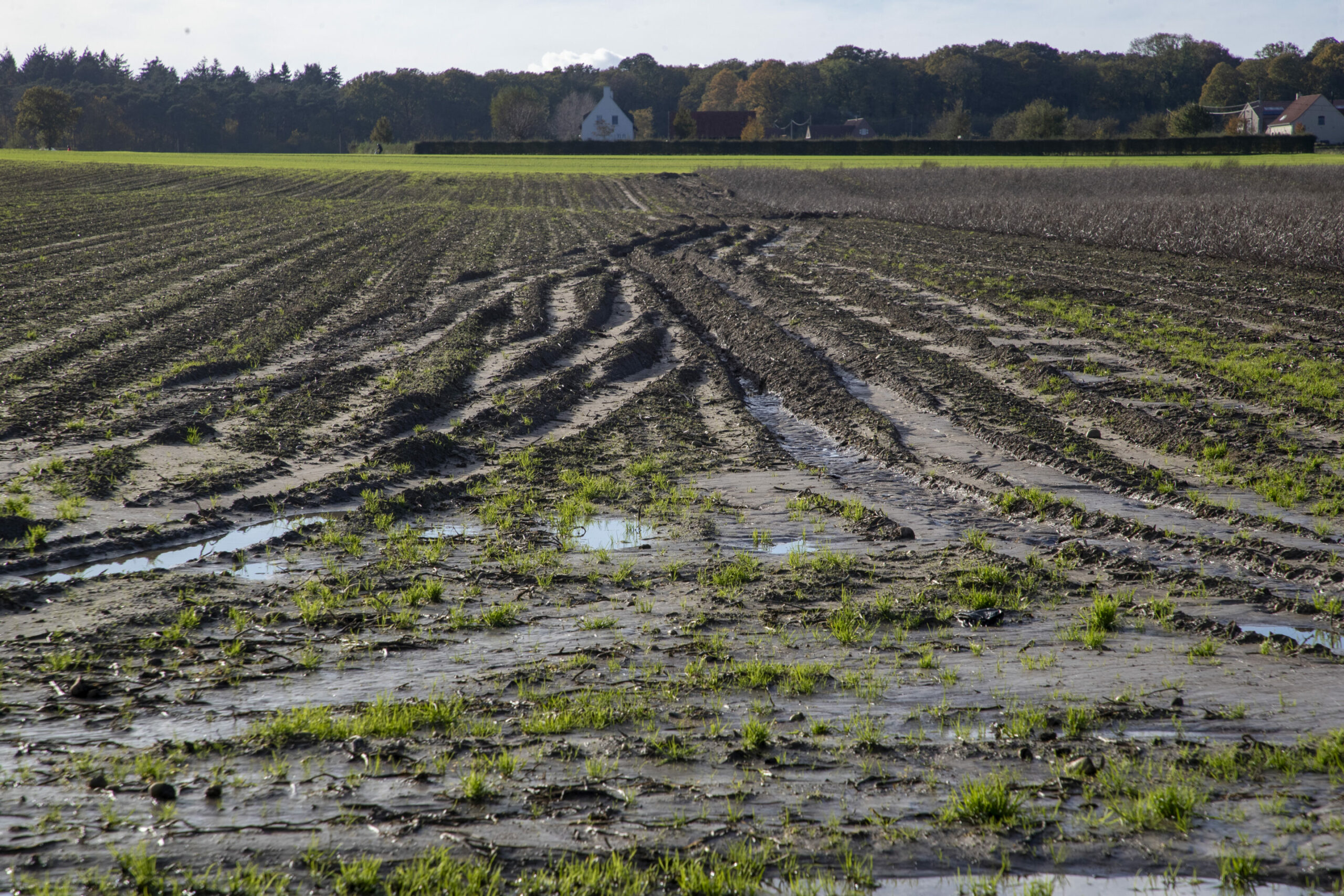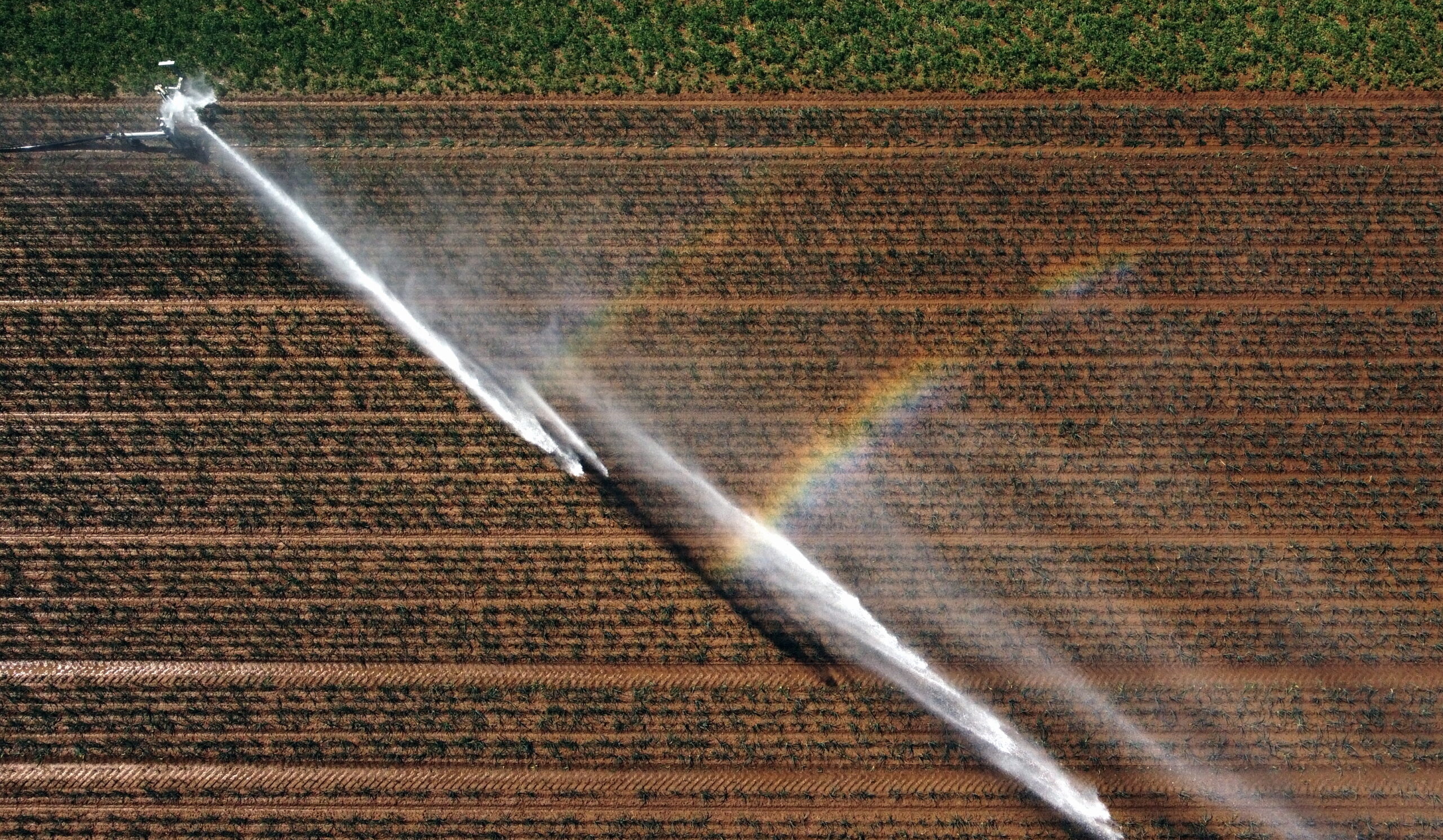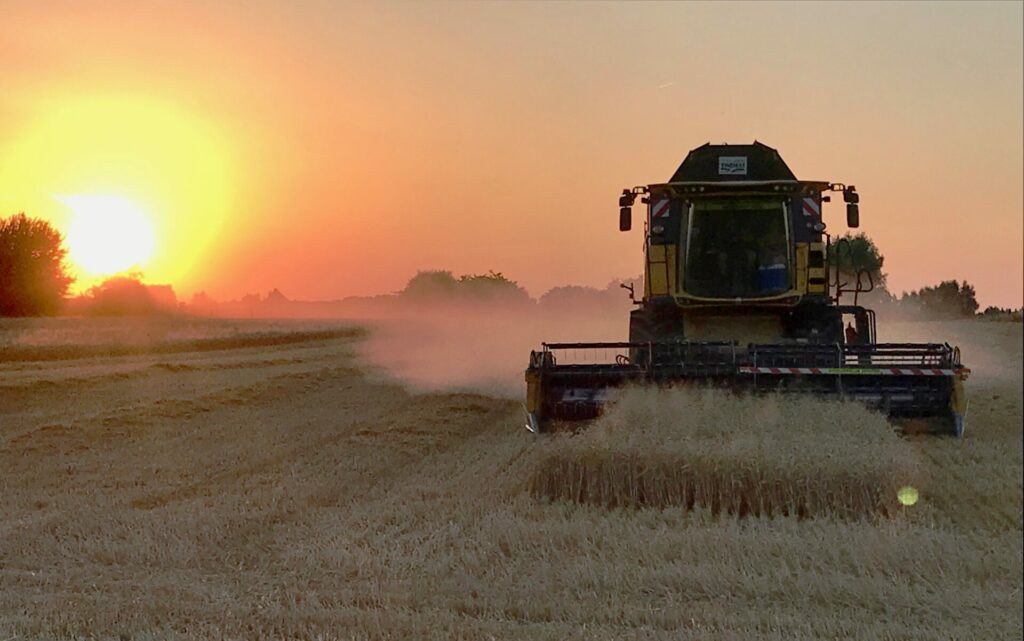Farming organisations in Wallonia and Flanders have warned that grain yields could be anywhere from 30% to 50% lower this year, as the wheat harvesting season is nearing its end.
Belgium has seen an almost year-long streak of record rainfall, which has been wreaking havoc for farmers. Weather reports from the Royal Meteorological Institute show that July brought the tenth consecutive month of excessive rainfall in Belgium - the wettest streak in 119 years.
In June, farmers flagged their concerns about food shortages and price hikes, as rain soaked fields left a shrinking window for crops to be planted.
Figures for spring crops published this week by Statbel show that there was a substantial 42.6% drop in the area of crops planted compared to last year.
The shrinking footprint of crops planted in spring was more pronounced in Flanders, which saw a decrease of 55%, while in Wallonia the cultivation area decreased by 36.2%.

A field after heavy rain in the West Flanders province in November 2023. Credit: Belga / Nicolas Maeterlinck
'Exceptionally wet spring' for Flemish farmers
The "exceptionally wet spring" meant that farmers in Flanders started work several weeks later than usual, and crops like maize and beets had less time to grow this summer, according to Flemish farming organisation Boerenbond. It adds that wetter conditions led to a higher incidence of plant diseases this year.
The organisations states that a variety of different crop types are expected to have lower yields this year, although yields can vary depending on crop type and region.
"The grain harvest is currently in full swing," says François Huyghe, an economic expert at Boerenbond's research department.
"According to my information, depending on the region, yields could be 30 to 40% lower than normal. For other crops, there is currently little data available," he said.
Huyghe said that harvests of early potatoes in Flanders are "quite reasonable", but for late potatoes and sugar beets it is "still far too early to make any predictions."
He added that it is also "premature" to predict how this year's harvest will affect supermarket prices.
Concerns about quantity and quality
In Wallonia, wheat farmers are also facing a drop in yields, and concerned about how they will fulfil contracts with wholesalers.
Benoît Thomassen, who works for the analytics department of the Walloon Federation of Agriculture (FWA), says wheat yields in Wallonia will be down by around 30%, falling by as much as 50% in some areas, according to initial estimates.
"There are two problems. We have the yields which are less tonnes per hectare, and there is also a big problem with quality. The grains are really small, they are almost empty. This is due to the lack of sun we had in late spring and the beginning of summer. The crops couldn’t photosynthesise to fill the grains with starch," he said.
Thomassen said that FWA is waiting till the end of August and a meeting between the wheat wholesalers to discuss the situation. Although less of a concern for potato farmers, some of the organisations' wheat farmers have supply contracts with wholesalers, and could face financial penalties if they cannot deliver agreed volumes.

Aerial picture shows the watering of a field in Hellecine, Wallonia. Credit: Belga. Eric Lalmand
Global wheat prices have fluctuated since 2022 when Russia invaded Ukraine, with both countries being prominent exporters of the crop. However, as both Russian and Ukrainian grain exports have recovered, it has pushed the price of grain lower since last year, which is bad news for European (including Belgian) farmers.
"The wheat price is set by the global prices and at the moment the prices are really low. So if you have 50% decrease in yield, it costs more to plant and work than to sell it, so it’s just not profitable," said Thomassen.
While both the Walloon and Flemish governments have disaster funds or similar mechanisms which can help to bail out farmers in extreme cases, Thomassen highlighted that it is not sustainable for these emergency funds to be accessed every year.
"We are activating the fund every year now, and the budget is really low. We have to work to try to find other compensations or strategies, like weather insurance supported by public money or something like that, to help farmers because it is really a difficult year and last year was not that easy either," he said.

